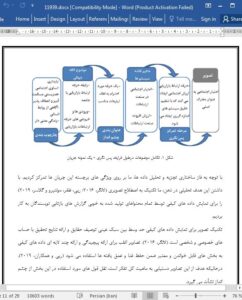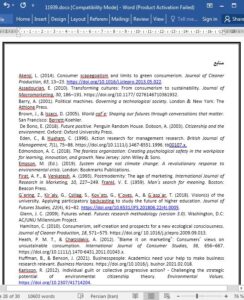Abstract
In 2018 a marketing communications firm decided to do a participatory backcasting project involving all their local members of staff to see what the future might bring in marketing communications. The exercise led to a unique knowledge accumulation process that has substantial research relevance. Unintentionally, this backcasting revolved around the role of marketing communications in transforming business to an ecologically sustainable and socially just modus operandi. While presenting the results of this action research, on the one hand this paper aims to provide inputs to reorienting marketing communications from its undignified status in sustainability efforts to something that supports sustainability transitions in society. On the other hand, it aims to contribute to the methodological discourses on backcasting. While it has been long established that backcasting is an adequate tool to address sustainability issues, this project suggests that participatory backcasting as a methodological framework has its own inner drives that lead to responsible and sustainable mind-sets even without such framings. These inner drives may have to do with the nature of utopian thinking, and the psychological safety and intellectual independence it provides.
1. Introduction
In scientific circles it is no longer debated that sustainability and the current patterns of consumption are not compatible in the long run. Needs, wants, desires are ought to be reassessed and we must find a way to reconcile our own way of living with ecological barriers and social justice. From this argument, it may seem straightforward that the marketing communications industry in its current form needs to reinvent itself if it does not want to take the blame for ruining the planet and taking humankind down with it. Nonetheless, even if climate strikes were on the rise and more and more cities declared a state of climate crisis even before COVID-19, the marketing industry seemed to be happily maintaining the impetus of the consumer society.










